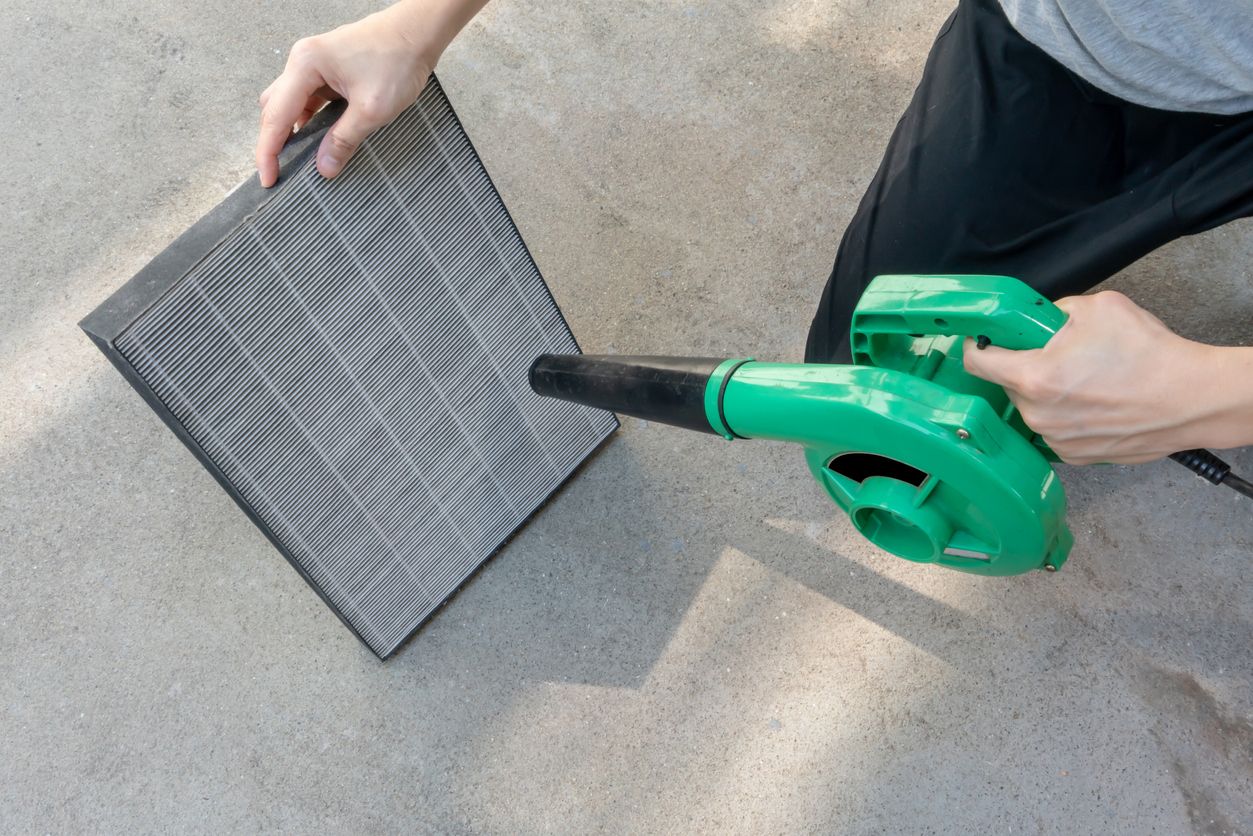Washable Vs Disposable Air Filters: Understanding the Pros and Cons

The first line of defense in guarding your home against airborne contaminants and pollutants is installing the right HVAC air filter and replacing or cleaning it regularly. When selecting an air filter type, you have several options, including choosing between washable vs disposable air filters.
Keep reading as HVAC.com explores the pros and cons of disposable and washable air filters to help you make an informed decision about which one is best suited for your needs.
The Basics of Air Filters
Before diving into the washable vs. disposable filter debate, it’s important to understand the primary purpose of air filters. Air filters are commonly installed between your HVAC system’s return duct and the air handler. They are designed to trap contaminants such as dust, pet dander, pollen, and other allergens to prevent them from entering your HVAC system and indoor air supply.
Aside from providing health benefits, air filters prevent particles from clogging up your heating and cooling system, which can reduce efficiency, decrease its lifespan, and eventually lead to breakdowns.
An air filter’s efficiency is measured by its Minimum Efficiency Reporting Value (MERV) rating on a scale of 1 to 16. The higher the number, the more efficient the air filter is at trapping small particles.
The four most common HVAC air filters are fiberglass filters, pleated filters, washable/reusable filters, and high-efficiency particulate air (HEPA) filters.
The Pros and Cons of Disposable Air Filters
Pros:
- Availability. Disposable air filters are available just about anywhere you shop, including your local grocer, big-box store, or pharmacy.
- Wide Variety. There’s an almost endless variety of filters to choose from with varying sizes and MERV ratings. If you’re new to buying HVAC filters, read your system’s owner’s manual to find the right size filter and recommended efficiency rating. While air filters with high MERV ratings remove the most contaminants, they can restrict airflow excessively in some HVAC systems which can cause airflow issues.
- Convenience. Replacing a disposable filter is an easy task that can be performed in a couple of minutes. You simply remove the old filter, throw it away, and slide in the new filter.
- Cost. Disposable air filters are relatively inexpensive, costing about $15 each.
Cons:
- Environmental Impact. Dirty air filters can’t be recycled; they go straight to the landfill, reducing your home’s environmental footprint.
- Ongoing Expenses: While disposable filters are inexpensive, they must be replaced about every 2-3 months. So you’re looking at spending at least $60-90 a year on filters.

The Pros and Cons of Washable Air Filters
Pros:
- Durable and Long-Lasting: Washable air filters are constructed using durable materials including synthetic fibers, aluminum mesh, or both. With proper cleaning and maintenance, washable air filters can last 5-10 years.
- Easy to Clean: Reusable air filters only take a few minutes to clean. The process typically consists of vacuuming or shaking off loose debris and rinsing the filter with water.
- Environmentally Friendly. Installing reusable air filters is the more environmentally friendly option because they only need to be replaced every few years.
- More Cost-Effective. The average cost of a washable filter is about $25-75. You will save money in the long run compared to buying disposable filters regularly.
“It’s important to consider that despite the higher initial cost of washable filters, the overall cost will likely level off in the long run,” said Mark Snell, CEO/President of Polestar Plumbing, Heating & Air Conditioning in Kansas City, MO. “You won’t need to purchase washable filters very often, so the long-term cost of washable filters will probably be the same or even lower than that of disposable filters.”
Cons:
- Time Commitment. After cleaning a reusable filter, you must let it dry for 20-30 minutes.
- Reduced Efficiency. Washable filters typically feature lower MERV ratings, making them less efficient at capturing smaller particles such as pollen and mold spores.
- Initial Cost: The upfront cost of washable filters is typically higher.
“Disposable filters are typically known for their superior overall efficiency,” Snell said. “In contrast, washable filters usually have a relatively low holding capacity, capturing only up to 75 percent of larger indoor pollutants like dust mites, carpet fibers, and pollen particles. Disposable filters with a MERV rating of 9 to 12, on the other hand, exhibit relatively high retention rates. These filters can capture up to 95 percent of the larger particles circulating through your home, thereby maintaining high indoor air quality and promoting the efficient operation of your HVAC system.”
Disposable Vs Washable Air Filters: Which Is Right for You?
When deciding between washable and disposable air filters, your choice should come down to your specific needs and priorities including your budget, environmental values, and filtration requirements.
If you’re seeking a budget-friendly option and prefer low maintenance, disposable filters may be suitable. On the other hand, if you’re looking to reduce waste and save money in the long run, washable filters can be a cost-effective and eco-friendly choice. It’s also essential to check your HVAC system’s compatibility with washable filters before making a decision.
To learn more about the right air filter for your HVAC system, contact HVAC.com's customer concierge team which can connect you with a local dealer so you can schedule maintenance.